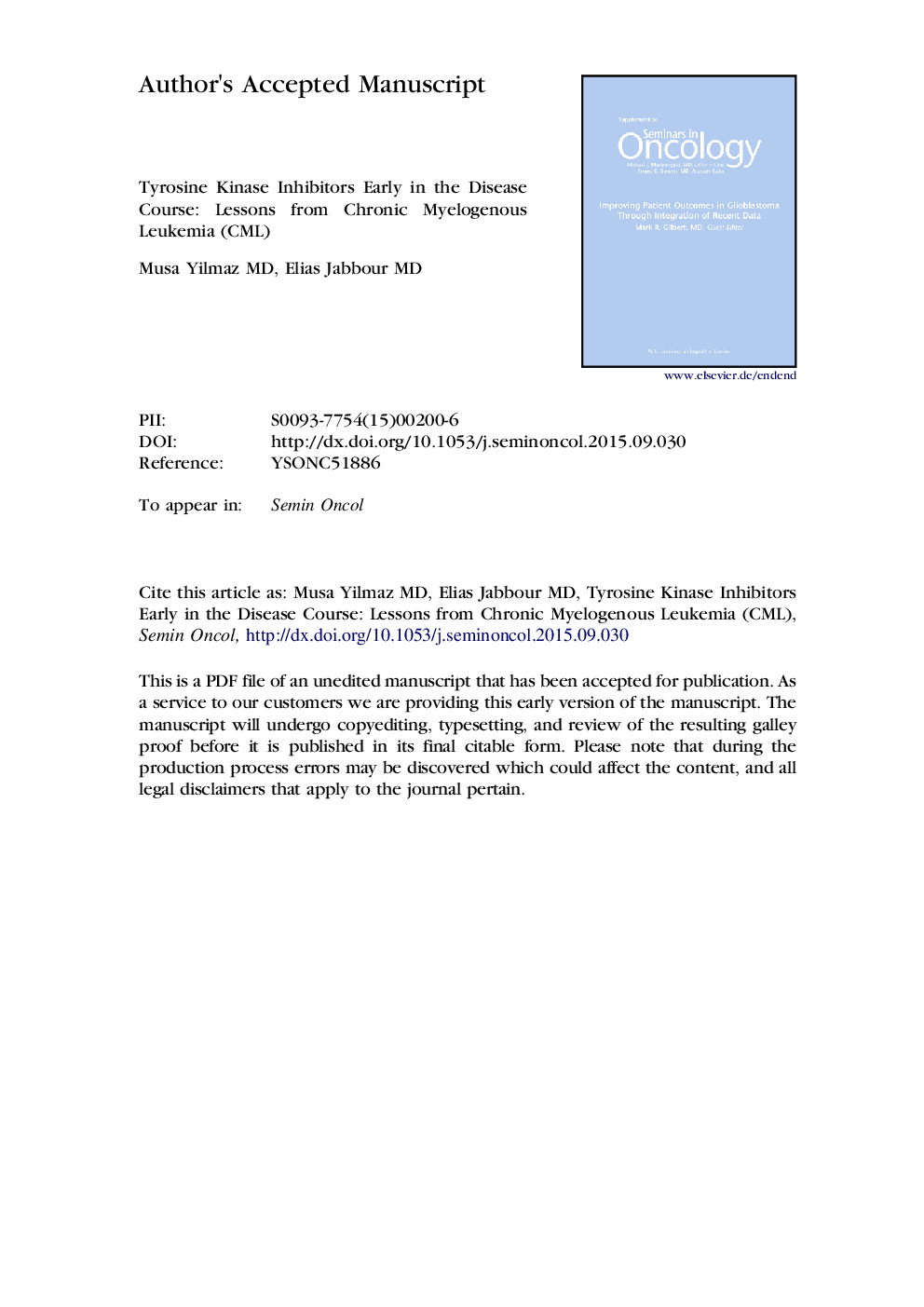| Article ID | Journal | Published Year | Pages | File Type |
|---|---|---|---|---|
| 10924318 | Seminars in Oncology | 2015 | 33 Pages |
Abstract
The landscape of chronic myeloid leukemia (CML) management has changed with the advent of tyrosine kinase inhibitors (TKIs) targeting the BCR-ABL1 oncoprotein. Imatinib mesylate, followed by nilotinib and dasatinib, has been approved for newly diagnosed patients. Since none of these TKIs show survival superiority, the drug choice is a challenge. Even so, the rate of deeper and earlier responses is higher with second-generation TKIs than it is with imatinib, and, in general, better response is associated with a survival advantage, regardless of TKI type being used. Patients should be monitored carefully for response, and treatment failure should prompt a timely switch to another TKI. Side effect profile and drug cost are other important considerations in therapy choice. In several clinical studies, achieving undetectable and durable disease status allowed some patients to discontinue the TKI and enjoy long-term treatment-free remission. Cure for CML may be possible with TKIs alone or TKIs in combination with other investigational therapies. However, due to lack of long-term outcome data and absence of consensus for the definition of optimal response and time to stop TKIs, discontinuation is discouraged outside of a clinical trial.
Related Topics
Life Sciences
Biochemistry, Genetics and Molecular Biology
Cancer Research
Authors
Musa Yilmaz, Elias Jabbour,
